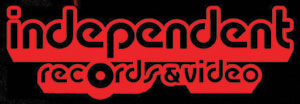The Manager’s Corner- December
by Chris Daniels
I’ve managed my own band since the 1980s and despite the amazing changes in technology, success in the music business is built around some tried and true elements: great music & performance, really hard work and timing (often mistaken for luck). The book I wrote for my UCD class on artist management is called “DIY: You’re Not in it Alone” and that is exactly what you need to understand … you have partners out there willing to help…and you should count on them.
According to new figures just released Universal owner Vivendi declared that their music division (record company) passed the 50:50 point from physical to digital products. While this is no shock to anybody who loves music and has been exploring it through Spotify, Youtube or even iTunes, this confirms that digital sales revenue represents 53.9% of Universal’s sale of recorded music, compared to 47.6% in 2012. Why is this important for people who manage themselves or who help manage other bands? Because it confirms a trend in the “broader market” that points to increased ‘internet delivery’ of the music we love.
What that means for the local musician recording a “CD” is that you better understand the realities of the economics behind putting out a product. Specifically, in previous columns I’ve written extensively about the importance of vinyl, about alternatives to just having a CD to sell at your gigs, like download cards, and on using the Break Even formula to calculate whether you can sell enough on your tour or gigging schedule to cover your cost. But the physical product sales drop is not about to change – so what’s an artist to do when it comes to local sales as they get started?
First, it means keeping your recording costs low. The extremely soulful and talented songwriter Megan Burtt did just that with her great new album “In Good Company.” (In the interest of full disclosure here I was lucky enough to write one song and sing a duet with Megan on the record). But what made the project compelling as a business model is that Megan spent next to nothing making the album. She was wonderfully creative in getting friends, studios and fellow musicians to donate time and talent. The record was part of a fundraising and awareness concert and association with the Love Hope Strength Foundation. (Again, full disclosure, I love this group because they come out to huge concerts and collect ‘cheek swabs’ for donor matches for bone marrow transplants and I am a Leukemia survivor that has a transplant from my sister that is the reason I’m alive). This kind of thinking for a young artist is essential to making the release of a CD something more than just another disc on the stack at the local radio station that never gets played. This project had a STORY and was remarkably well thought out by Megan…and it’s a great record featuring some of the best new talent including SHEL, The Epilogues, The Congress and many more. And she lined up great sponsors including Immersive Studios, Larabar, Eyedea Worx and more.
And that is the point. Young DIY artists have got to face the facts that (a) they are GOING to make recordings and (b) they are facing a diminishing market for earning money from those recordings. Megan’s project is one of the best examples I’ve seen in the past year of dealing with those realities head-on – and turning the realities of the marketplace into a positive … her innovative approach is getting noticed in and of itself…it augments the fantastic music she recorded (OK I am biased but it’s a great record … but I’m not writing a review). From Amanda Palmer to Megan Burt artists are reinventing the way they get their “music out there” while dealing with the realities of diminishing revenue from sales.
So the question for you, (the artist driven to record music), is how will you deal with the realities of the marketplace? If you are thinking that the old “record it and sell it on iTunes” – will bring you the repayment for your costs of recording, you are mistaken. What is often taught in colleges as ‘entrepreneurial thinking’ is becoming a standard requirement for success. It’s not just the marketing approach you take. It starts with the funding, business concept and organization you put into the business side of the equation. These can be just as important as the music itself.
One final example: It’s the “Holiday Season” and there is a wealth of music hitting the stores and concert halls. You may have the best Holiday music on the planet – but if you don’t have a great business plan in place it may never get the attention it deserves. First, you need to start your recording no later than July…not necessarily the Christmas/Hanukah season. Second, you need to look at how you are going to get the biggest attention you can for the recording…one of the best ways is to affiliate with a charity. Third is to bring that altogether with a media sponsor to give it the push it needs. Jake Schroder, (Avalanche National Anthem singer and leader of the band Opie Gone Bad) wrote the book on how to do this with his series of “Opie Gone Christmas” records that featured a cast of remarkable stars like Diane Reeves and an affiliation with both Channel 9 (KUSA) and King Soopers for the Food Bank of The Rockies.
Now don’t get me wrong, I am not suggesting that the only successful way to get noticed for your recorded music is to affiliate with a charity, far from it. The point of my little rant on this subject is that both Megan and Jake began with the love of the music, and then backed that up with thinking that was every bit as innovative as the songs and the performances on the records. And as hard as that seems, to really make the best use of a record release, you have to do the same thing, maximize your efforts by planning out your project, finding innovative ways to keep the costs low and the quality high and then come up with creative ways to affiliate with others to get the most traction in the market. Sounds hard. And it is. But so were all those thousands of hours you put into learning to be a great songwriter, musician and/or singer. Nothing comes easy for the majority of musicians these days and you have to face the facts and deal with it creatively and with innovative plans and actions. But hey, this is Colorado and we are in the middle of a music explosion so we can do it!
Category: Shop Talk

















